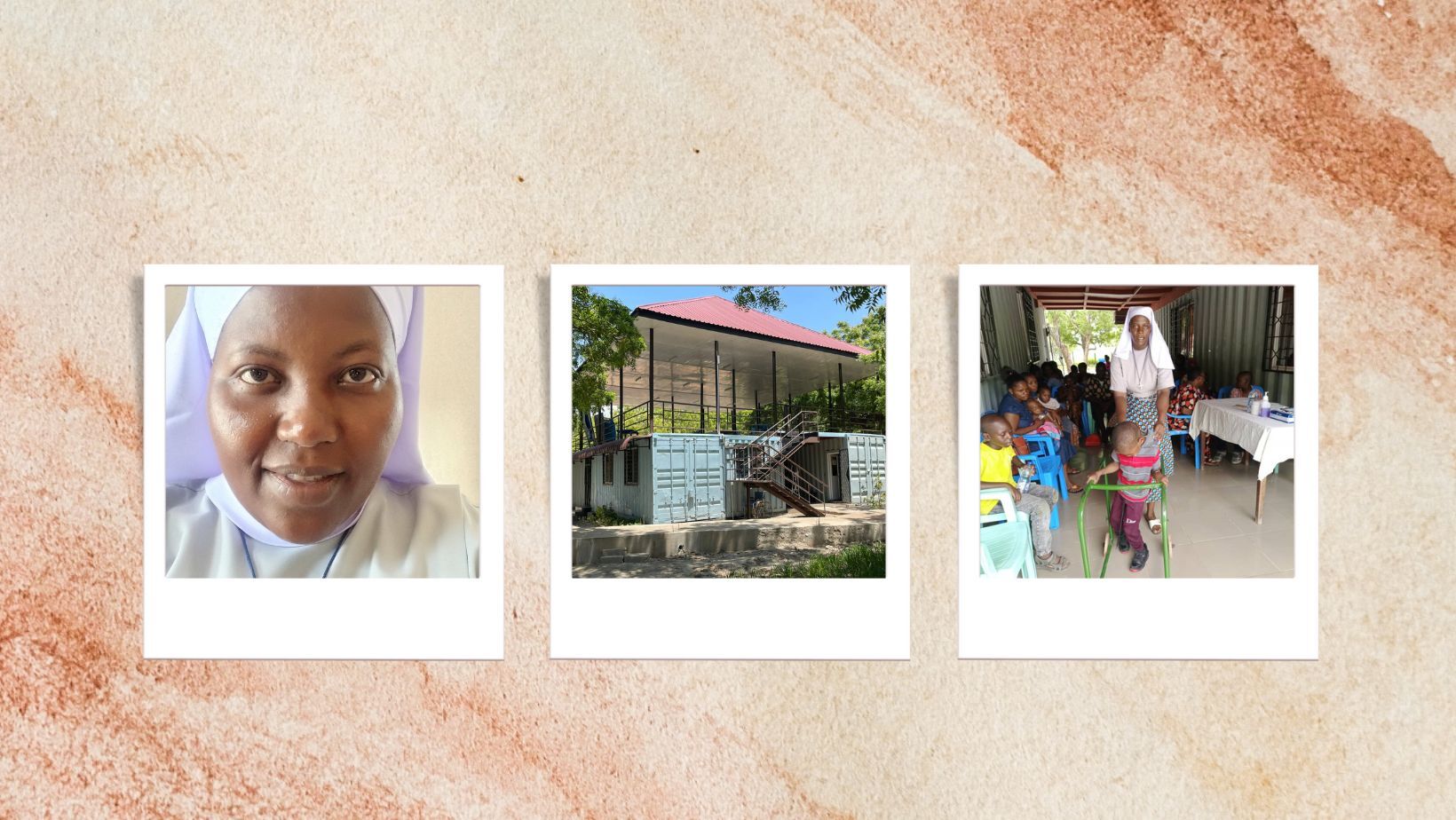
Ein Rehazentrum aus Schiffscontainern
„Warum haben wir selbst kein Rehabilitierungszentrum für Menschen mit Behinderungen, die an Epilepsie leiden?“ Diese Frage stellte sich die Ärztin Sarah Kahumbya 2019, nachdem sie gerade aus Hamburg nach Daressalam, Tansanias Hauptstadt, zurückgekehrt war. Sarah Kahumbya leitet dort das Cardinal Rugambwa Hospital (CRH). Die Mitarbeitenden nennen sie hier nur „Schwester Sarah“ – das Krankenhaus gehört zur Erzdiözese Daressalam und wird von den Nonnen des Frauenordens der Heiligen Theresa geleitet. Kinder entwickeln sich schnell weiter Heute verfügt das CRH über ein Rehabilitierungszentrum, das vor allem Kinder behandelt. „Das haben wir aus Schiffscontainern gebaut und die Fenster dort selbst reingeschnitten“, sagt Schwester Sarah und lacht. Improvisation ist Teil des Klinikalltags. Die Container konnte das tansanisch-deutsche Projektteam über die Förderung durch das GIZ-Klinikpartnerschaftsprogramm finanzieren. Das Zentrum bietet heute regelmäßig „Screenings Days“ für kleine und große Patient*innen mit Behinderungen an, bei denen ein Verdacht auf Epilepsie besteht. Eine der häufigsten Ursachen für eine Epilepsie bei Menschen mit Behinderungen ist eine Zerebralparese, die mit schweren Spastiken einhergeht. Das Rehazentrum bietet außerdem Bewegungs- und Ergotherapie an. „Das ist gerade bei Kindern eine wirksame Therapie, weil wir bei ihnen sehr schnell Fortschritte beobachten können“, so die Ärztin. Die Nonnen arbeiten zudem mit dem nahegelegenen Muhimbili National Hospital zusammen, das ihren Neurologen für Visiten vorbeischickt. Mitarbeitende werden geschult Die Partnerschaft mit dem Evangelischen Krankenhaus Alsterdorf (EKA) habe ihnen durch die gemeinsamen Besuche und Trainings enorm viel Motivation gegeben, berichtet die Ärztin. Die Klinikpartner*innen planen aktuell, ein Elektroenzephalogramm (EEG) anzuschaffen, an dem Mitarbeitende geschult werden können. Durch diese und weitere Maßnahmen wurde das CRH kürzlich von einem „District Hospital“ zu einem „Referral Hospital“ in Tansania aufgewertet. Ein großer Schritt Richtung Zukunft. Menschen mit Behinderungen oft von Epilepsie betroffen Das CRH und das EKA sind christliche Einrichtungen. Beide sind auf Menschen spezialisiert, die lange nicht beachtet wurden: Kinder und Erwachsene mit körperlichen und psychischen Behinderungen. Das EKA ist seit 1999 Schwerpunktklinik in Deutschland für Menschen, die Epileptiker*innen sind. Das neurologische Krankheitsbild betrifft weltweit rund ein Drittel aller Menschen mit Behinderungen. Doch gerade in Subsahara-Afrika ist die Zahl aufgrund vernachlässigter Tropenerkrankungen, wie der Flussblindheit und der Schweinebandwurm-Infektion, besonders hoch. Weil es nur rund zwölf Neurolog*innen in Tansania gibt, bleibt Epilepsie in dem großen Land häufig unbehandelt. Stigma und Ausgrenzung Epileptiker*innen leiden an krampfartigen Anfällen, die durch geburtsbedingte Gehirnschäden, Unfälle oder Tumore entstehen. Hinzu kommt eine gesellschaftliche Stigmatisierung durch stereotype Bilder und Vorurteile: Krampft eine_e Epileptiker*in beispielsweise neben einer Feuerstelle in einer Hütte, in der die Familie üblicherweise kocht, retten die Angehörigen ihn nicht unbedingt vor den Flammen. Der Grund: Sie haben Angst, weil sie denken, dass sie sich selbst mit Epilepsie anstecken können. Für den betroffenen Menschen hat das fatale Folgen: Er erleidet schwerste Verbrennungen – und ist dadurch noch mehr eingeschränkt. Zukunftswünsche
„In diesem Jahr werden wir die Schulungen in beiden Städten, in Hamburg und Daressalam, ausbauen“, sagt Marion Förster, Projektleiterin der deutschen Seite. Der Bedarf an Aus- und Fortbildungen im Bereich Neurologie sei hoch. |